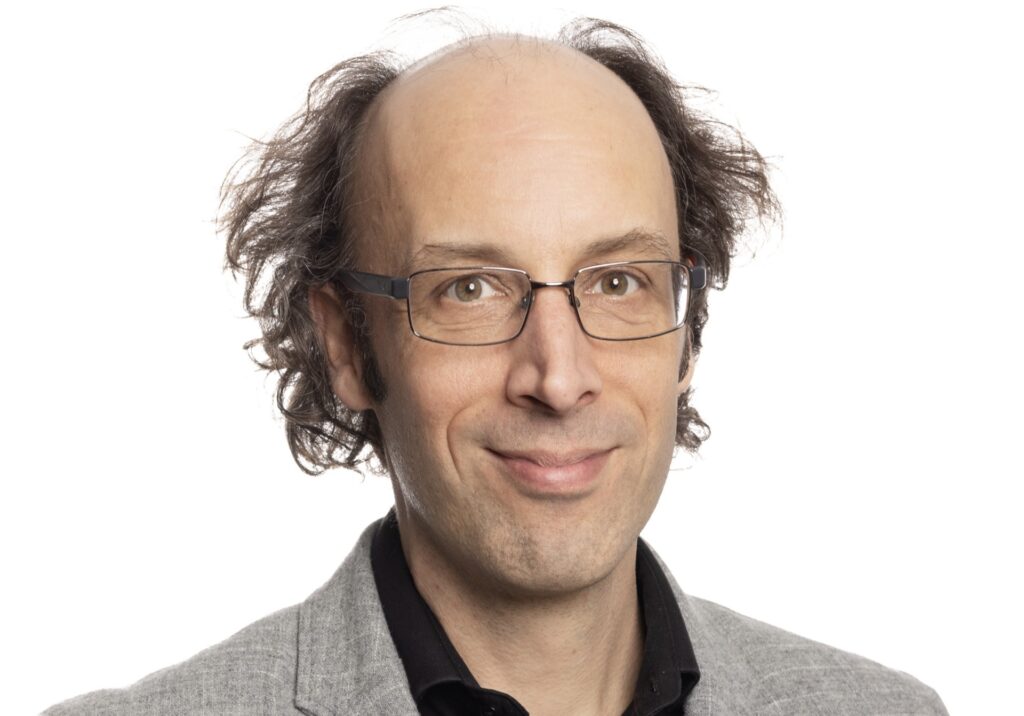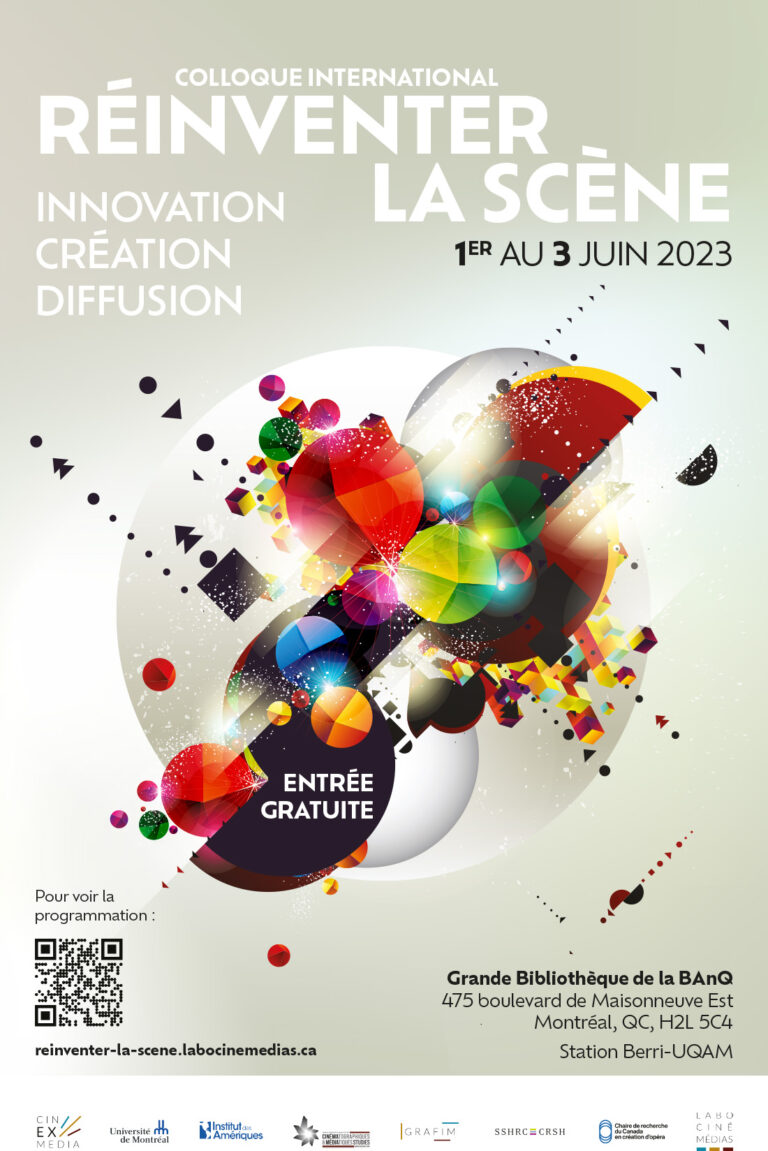The scientist and entrepreneur Olivier Daigle recently moderated a discussion at a Université de Montréal seminar on the contribution of the sciences to science fiction cinema.

Hugo Samson
On 18 June, in a special session of professor Santiago Hidalgo’s CIN-2106 master’s seminar at the Université de Montréal, “Cinema and Science,” the astrophysicist Olivier Daigle was invited to moderate a discussion on the scientific aspect in science fiction films.
When he was completing his doctorate in astrophysics in 2010, Daigle developed a system for considerably improving the quality of images taken by astronomical cameras, an invention which NASA lost no time in acquiring. Today he is director of technology at Nüvü Cameras, a business he cofounded.
Keenly interested in science and cinema alike, Daigle did not hesitate to accept Santiago Hidalgo’s invitation to moderate a session of his master’s seminar. “I thought it was interesting to bring these two fields together, which I have always liked”, he remarks. “It makes it possible to introduce the sciences to very large numbers of people, and to bring backed-up scientific concepts, which is very important today with all the disinformation out there”.
“Two milieux which feed off one another very much”
Daigle notes that this discussion was his first foray into the world of cinema studies. He points out, however, that “over time there has been greater concern in cinema to depict science properly, to not twist it too much”. He believes in particular that “several recent films have been concerned to tell a story which is plausible from a scientific perspective”.
For Daigle, cinema’s contribution to the natural sciences, a topic that was at the heart of his presentation in the seminar, is two-fold: “from the point of view of popularising and showing science, I believe that good films that highlight the sciences can lead young and not so young people to science and to make a career in it”.
“From a technical point of view”, he adds, “the contribution goes, rather, in both directions: if a technology evolves and enables us to design better scientific sensors, for example, improvements in light sensitivity and recording speed can also be used in film equipment. Conversely, high speed cameras which may be developed for certain needs in cinema can be used in science to study especially rapid phenomena”.
During the first few years of activity of Nüvü Cameras, the technology developed by Olivier Daigle and his team enjoyed considerable media coverage: “A lot of people had heard of what we were doing, and many filmmakers contacted us to use what we had developed”.
For the past several years Daigle has made ultra-sensitive cameras, capable of detecting the least sliver of light. “Even though our cameras cannot be used directly in filmmaking”, he points out, “progress overall in digital imagery can benefit the field of cinema, and vice versa”.
Pointing Cameras at the Sky
Even though Olivier Daigle asserts that he is not an expert in cinema, it has always been an important part of his life: “Cinema has always been present in my career. Just as I have always been interested in photography, I have often had the opportunity to rub shoulders with cinema”.
In this sense, he explains, he was introduced to astrophysics and photography simultaneously: “An uncle had purchased a small telescope and showed it to me when I was in fourth grade. The following year I delivered newspapers door to door, and I decided to buy a telescope, a slightly bigger one, with the money I earned”.
From telescopes he moved on to cameras: “I became interested in photography very early on. It began with a small, fixed-focus camera, which I bought when I was twelve or thirteen. I then had an old reflex, whose lenses I could change, which belonged to my parents”.
Slowly, his lens turned to the sky. “Over time, I began to purchase my own material. With my telescope, I tried to take pictures of the sky – on film stock, which was rather hard! – to see better what I couldn’t see with the naked eye”.
But cinema was never far away. Daigle recalls a memorable episode in his life, a journey to India and Brazil, during which he worked as a cinematographer on his spouse's film.
The reason cinema and science have always co-existed in his life, the entrepreneur explains, may also be that each of them makes us understand the world and see the bigger picture: “In science fiction films, the themes are often representative of the challenges with which humanity is faced. Today, this is true of post-apocalyptic films which address the impact of climate change”.
“With a telescope, you see things that are hidden; that reveals the entire infinite quality of the world. It is by looking at the sky that one realises, on the scale of the universe, that we are just a grain of sand”.

